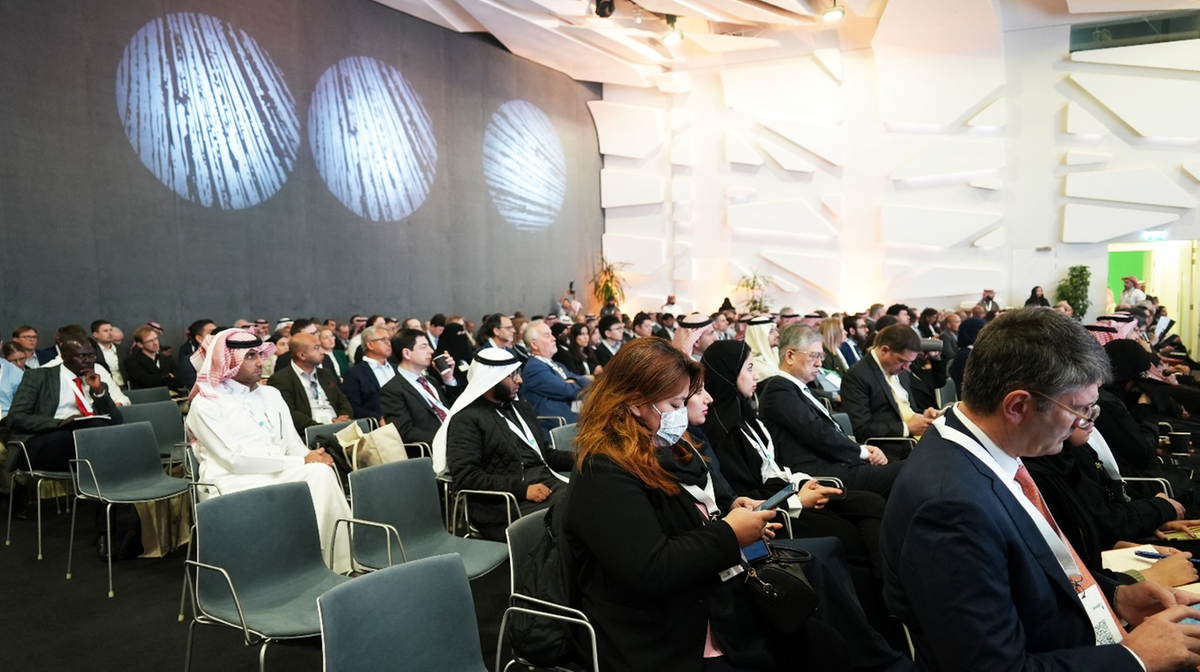Global energy discussions should switch more to inclusive transition, experts urge
By Jan Yumul in Riyadh | chinadaily.com.cn | Updated: 2023-02-12 13:16

Experts at the 44th International Conference of the International Association for Energy Economics in Saudi Arabia have underscored the need to reorient global discussions when it comes to energy, development and climate change to make energy transition more inclusive.
They also point to the lack of needed financing to help the Middle East and North Africa region mitigate the climate action as most global trends is based "on the demonization of oil, gas and carbon".
In the "energy, development and climate change" session, which explores the link between economic development and environmental conservation, on Feb 6, Noura Alissa, senior international policy analyst at the Ministry of Energy of Saudi Arabia said the reorientation of global mitigation needs to be inclusive not just from the regional perspective.
"We see many examples outside of developing countries very much within the developed world of targets and then backtracking on those targets and going back to higher emitting sectors because of the lack of infrastructure that encapsulates these different methodologies," Alissa said.
She also thinks that all global trends are based on "the demonization of oil, gas and carbon", pushing the financial sector to consider how they can shift away from oil and gas from the perspective of receiving investments. She took note that they "understand the negative impacts of these from an environmental perspective".
"But if we do not humanize it or at least understand its relationship with nature and how we can utilize it to create new sectors, we will not be having the financing streaming into these different research and development demo and projects," said Alissa.
Manjeet Kripalani, executive director at foreign policy think tank Gateway House in Mumbai, said in India, they use their energy "very carefully because we pay for it" as the country is "80 percent importers". She said public messaging has become important.
She said in poorer countries, in South Asia in particular, conservation "is a very big thing yet there has not been a lot of conversation about conservation.
"This morning there was a conversation on demand-side management. We need to have more of that because the public in our part of the world…we don't have a lot. And so conserving comes naturally. I think that is a big part of managing a public acceptance," said Kripalani.
"What we really need is cheap and reliable energy. There's so much talk about getting rid of coal. We reiterate this message: it is problematic. Coal is necessary. It's cheap and you've transitioned into petrol and then you transition into renewables. You can't just jump into renewables when it's so expensive," she added.
She said for "the countries that have created the problems", the climate finance pledges have not been made.
"You can't think about having a policy unless you have money. You can't work on it," said Kripalani. adding that the developed world "really has to allow us to do it our way because we can do it". She said today, one cannot get a bulb in India unless it is an LED bulb.
Sarah Najm, assistant professor at the department of economics at King Saud University, said globally speaking, before getting any policy reforms from abroad, from developed economies, and from an emerging market, there is a need to realize that each country "has its own incentive structure".
"What might work well in some parts might not work well in other places. So realizing the domestic needs from different incentives before applying different or dissimilar policy elsewhere," said Najm.
"If I look at from a more micro level, I would choose education to focus on…youth is the biggest asset. And I think to focus on that they want to be involved in and we know that from university level, higher education why not from the start? Why not make it just embedded in the system, in the education system so it becomes more of a social norm?" she added.
In shedding light on the situation in Oman, Sausan Al-Riyami, director of the Oman Hydrogen Centre, German University of Technology in Oman, said they produce water when they want to produce oil.
"We thought we should sort out an environmental problem but you have an option, how do you solve it? Do you want just to solve the problem or maximize on these challenges and end up (with) another project?"
"We see the challenge and we don't want to avoid (it). We love to see the challenge and we love to be challenged. The electrolytes in the market are not yet upscaled, as far as I know, to match demand," said Al-Riyami.

Rola Dashti, executive secretary at the United Nations Economic and Social Commission for Western Asia, or UNESCWA, said the MENA region needs innovative financing as the financing it gets, "the majority of it are debts".
"We at UNESCWA started working on Sustainable Development Goals climate that swaps financing donor nexus to ease and increase the liquidity and commitment on climate action projects on this and I think the innovative type of financing is important and there is need to be worked on for the region," said Dashti.
She also said another area to focus on is loss and damage.
"The region needs to be engaged in the loss and damage action so they don't become a recipient of an outcome which is not preferential and so I think this is… a momentum is coming up. Third thing, inclusive energy transition," she added.
























